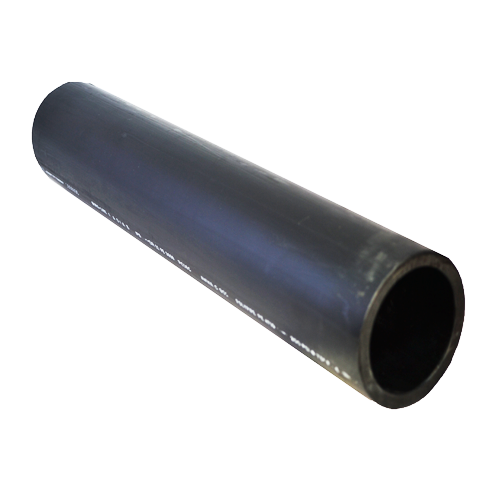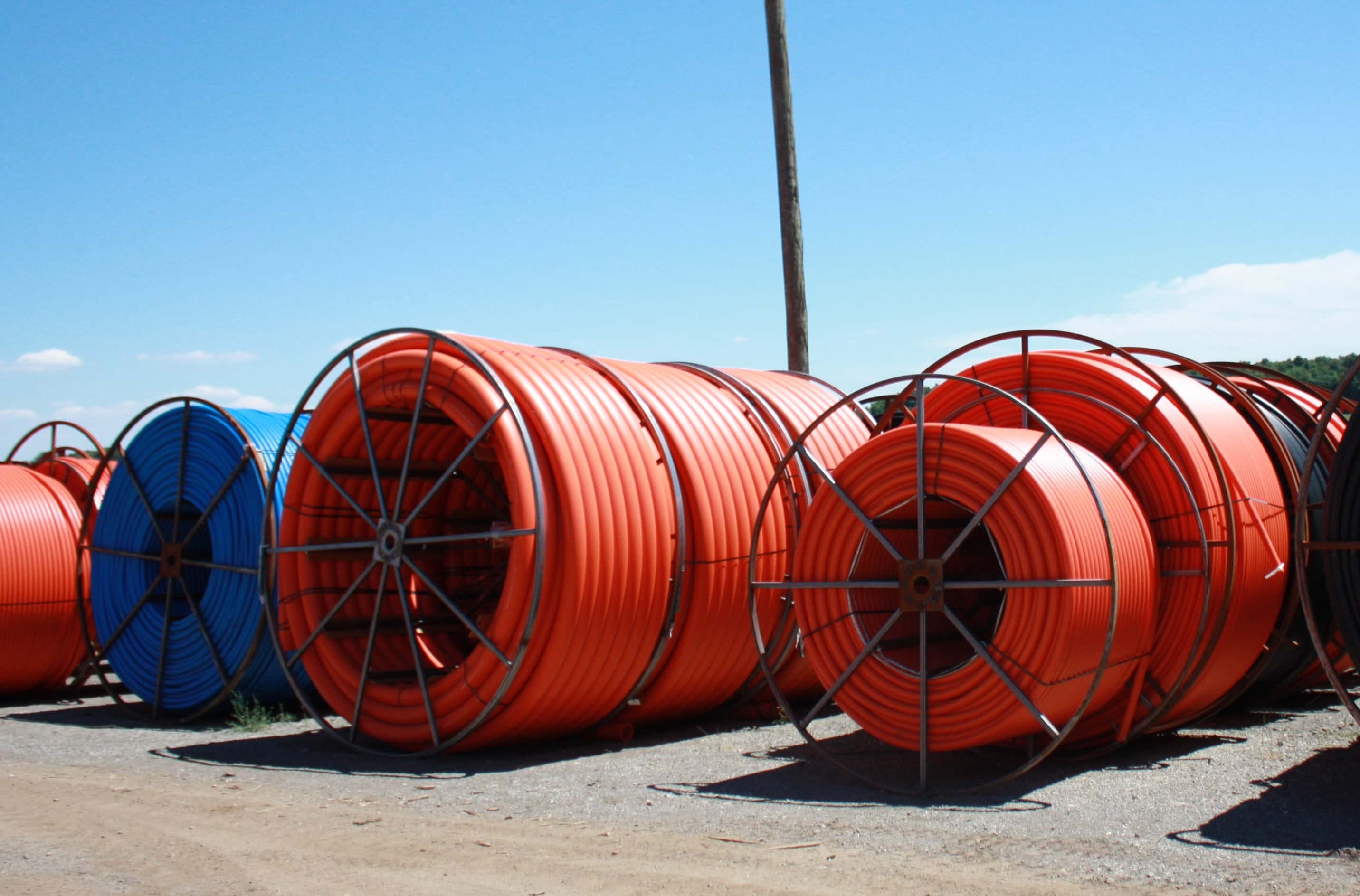The Definitive Handbook to Pipe Manufacturing Midland TX for Industrial Needs
A Comprehensive Overview to the Numerous Uses HDPE Pipe in Construction and Market
HDPE pipelines have actually arised as a crucial component in modern construction and industrial applications. Their special residential or commercial properties, such as resistance to rust and lightweight design, make them appropriate for a wide variety of uses. From water supply systems to farming watering, HDPE pipes supply solutions that enhance effectiveness and sustainability. Recognizing their varied applications is necessary for specialists seeking to enhance facilities. What particular advantages do these pipelines offer each field?
Water and Circulation Systems
Water supply and circulation systems are essential parts of metropolitan infrastructure, often depending on high-density polyethylene (HDPE) pipelines for their sturdiness and efficiency. These systems transportation drinkable water from treatment centers to consumers, ensuring access and security. HDPE pipelines are preferred for their resistance to corrosion, chemicals, and severe temperatures, which boosts their longevity and lowers maintenance prices. Furthermore, their light-weight nature enables for easier setup and transportation, making them suitable for various city and rural applications.
The versatility of HDPE pipelines enables them to be mounted in tight areas and around obstacles, lessening the need for considerable excavation (custom hdpe pipe manufacturing Midland TX). Their smooth indoor surface minimizes rubbing losses, improving water flow rates. As cities proceed to grow, the demand for trusted water system systems increases, placing HDPE pipelines as a lasting solution for contemporary facilities tasks. Their tried and tested track record makes them a favored selection amongst engineers and metropolitan coordinators alike
Wastewater Monitoring and Therapy
Reliable wastewater management and treatment are vital for preserving public health and wellness and ecological top quality. HDPE pipelines play a crucial function in this procedure because of their toughness, resistance to deterioration, and ability to withstand harsh chemicals. These pipes are typically utilized in various applications, including sewer system, stormwater drainage, and wastewater treatment centers. Their light-weight nature assists in less complicated installment and transport, lowering labor prices and time.
In addition, HDPE pipes have a smooth indoor surface area that lessens rubbing loss, promoting effective circulation rates. They are additionally less susceptible to leakages and failures compared to standard materials, making sure that impurities are included properly. Furthermore, their versatility permits adaptability in different dirt conditions, making them ideal for diverse ecological setups. As markets significantly focus on lasting techniques, using HDPE pipelines in wastewater management systems aligns with goals for reducing environmental effect and enhancing source recovery.
Agricultural Watering Solutions
In farming setups, reliable watering options are essential for optimizing plant returns and taking care of water sources. HDPE (High-Density Polyethylene) pipelines play a crucial function in contemporary irrigation systems due to their durability, flexibility, and resistance to deterioration. Their capacity to hold up against high stress makes them optimal for both surface and subsurface irrigation applications, ensuring consistent water circulation across areas.
Farmers can make use of HDPE pipes in drip irrigation systems, which supply water straight to plant roots, minimizing wastefulness and promoting healthy development. Furthermore, these pipes are light-weight and simple to install, lowering labor expenses and installation time. Their lengthy life expectancy and reduced maintenance requirements better improve their allure in agricultural practices.
HDPE pipelines are environmentally pleasant, as they can be recycled and do not seep harmful chemicals right into the dirt. This makes them a sustainable selection for farmers aiming to take on environment-friendly agricultural techniques while taking full advantage of productivity.
Industrial Applications and Processes
Convenience is a hallmark of HDPE pipelines, making them essential in different commercial applications and processes. These pipelines are extensively utilized in chemical handling industries due to their exceptional resistance to a vast array of harsh substances. HDPE's lightweight nature, incorporated with high tensile strength, permits very easy installation and long-term efficiency in requiring settings.
In the oil and gas sector, HDPE pipes play a necessary role in delivering hydrocarbons and gases, thanks to their sturdiness and website adaptability - Texas hdpe pipe manufacturer. Furthermore, they are utilized in mining procedures for the transport of slurry and various other materials, where conventional piping systems may stop working
HDPE pipes are progressively utilized in producing facilities for water supply lines and wastewater management. Their ability to withstand extreme temperature levels and stress makes them ideal for a range of commercial procedures. In general, HDPE pipelines add substantially to performance and security throughout varied industrial applications.
Stormwater Management and Water Drainage Solutions
Stormwater administration and water drainage systems are critical components in urban facilities, designed to manage excess rainfall and decrease flooding risks. High-density polyethylene (HDPE) pipelines are increasingly made use of in these systems due to their durability, flexibility, and resistance to rust. These pipelines efficiently carry stormwater far from inhabited areas, decreasing surface drainage and stopping waterlogging.
HDPE's light-weight nature assists in easier setup, reducing labor expenses and building and construction time. Furthermore, its resistance to chemicals and ecological stressors assurances long life and reliability in different environments. In addition to standard water drainage applications, HDPE pipes are likewise used in innovative options such as environment-friendly infrastructure, which includes rainfall yards and permeable pavements.

Frequently Asked Concerns
Just How Does HDPE Pipeline Compare to PVC Pipeline in Price?
Generally, HDPE pipe often tends to be more pricey than PVC pipe because of its improved durability and versatility. Long-term cost considerations, such as maintenance and lifespan, might prefer HDPE in details applications.
What Is the Life-span of HDPE Piping Under Numerous Problems?
HDPE pipelines normally have a life-span of 50 to 100 years, depending upon environmental conditions, installation practices, and use. Variables such as temperature level, soil type, and direct exposure to chemicals can substantially affect their toughness.
Can HDPE Water Lines Be Recycled After Use?
Yes, HDPE pipes can be reused after use. The recycling procedure entails melting down the material, permitting it to be repurposed right into new items, therefore promoting sustainability and decreasing ecological effect connected with plastic waste.
Are There Any Kind Of Certain Installation Obstacles With HDPE Pipelines?
Installation obstacles with HDPE pipes include appropriate jointing techniques, making certain appropriate trench conditions, and taking care of thermal growth. In addition, proficient labor is required to take care of specific tools, which can complicate the installment process in numerous atmospheres.

What Certifications Should I Try To Find When Getting HDPE Pipes?
When acquiring HDPE pipelines, one must search for accreditations such as ASTM, AASHTO, and ISO, which verify top quality and compliance with sector standards, assuring sturdiness and efficiency in different applications. - Pipe Manufacturing Midland TX